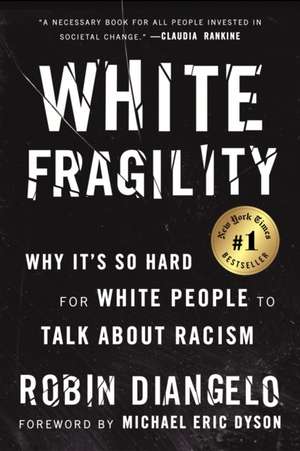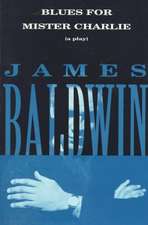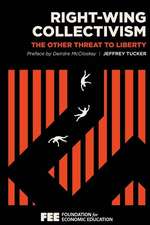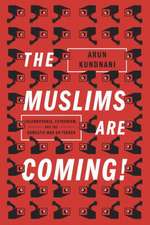White Fragility
Autor Robin DiAngeloen Limba Engleză Paperback – 26 iun 2018
| Toate formatele și edițiile | Preț | Express |
|---|---|---|
| Paperback (2) | 51.85 lei 22-33 zile | +16.88 lei 7-13 zile |
| Penguin Books – 6 feb 2019 | 51.85 lei 22-33 zile | +16.88 lei 7-13 zile |
| Penguin LLC US – 26 iun 2018 | 89.29 lei 3-5 săpt. | +11.31 lei 7-13 zile |
| Hardback (2) | 150.52 lei 3-5 săpt. | +37.01 lei 7-13 zile |
| Beacon Press – 17 noi 2020 | 150.52 lei 3-5 săpt. | +37.01 lei 7-13 zile |
| Beacon Press – 13 sep 2022 | 162.34 lei 3-5 săpt. | +21.92 lei 7-13 zile |
Preț: 89.29 lei
Nou
17.09€ • 17.82$ • 14.20£
Carte disponibilă
Livrare economică 27 februarie-13 martie
Livrare express 13-19 februarie pentru 21.30 lei
Specificații
ISBN-10: 0807047414
Pagini: 192
Dimensiuni: 151 x 228 x 17 mm
Greutate: 0.3 kg
Editura: Penguin LLC US
Colecția Beacon Press
Descriere
The International Bestseller
Anger. Fear. Guilt. Denial. Silence. These are the ways in which ordinary white people react when it is pointed out to them that they have done or said something that has - unintentionally - caused racial offence or hurt. But these reactions only serve to silence people of colour, who cannot give honest feedback to 'liberal' white people lest they provoke a dangerous emotional reaction.
Robin DiAngelo coined the term 'White Fragility' in 2011 to describe this process and is here to show us how it serves to uphold the system of white supremacy. Using knowledge and insight gained over decades of running racial awareness workshops and working on this idea as a Professor of Whiteness Studies, she shows us how we can start having more honest conversations, listen to each other better and react to feedback with grace and humility. It is not enough to simply hold abstract progressive views and condemn the obvious racists on social media - change starts with us all at a practical, granular level, and it is time for all white people to take responsibility for relinquishing their own racial supremacy.
'With clarity and compassion, DiAngelo allows us to understand racism as a practice not restricted to "bad people." In doing so, she moves our national discussions forward. This is a necessary book for all people invested in societal change' Claudia Rankine
'An important book' Nikesh Shukla
'By turns mordant and then inspirational, an argument that powerful forces and tragic histories stack the deck fully against racial justice alongside one that we need only to be clearer, try harder, and do better' David Roediger, Los Angeles Review of Books
'The value in White Fragility lies in its methodical, irrefutable exposure of racism in thought and action, and its call for humility and vigilance' Katy Waldman, New Yorker
'A vital, necessary, and beautiful book' Michael Eric Dyson
Notă biografică
Cuprins
Author’s Note
Introduction: We Can’t Get There from Here
1. The Challenges of Talking to White People About Racism
2. Racism and White Supremacy
3. Racism After the Civil Rights Movement
4. How Does Race Shape the Lives of White People?
5. The Good/Bad Binary
6. Anti-Blackness
7. Racial Triggers for White People
8. The Result: White Fragility
9. White Fragility in Action
10. White Fragility and the Rules of Engagement
11. White Women’s Tears
12. Where Do We Go from Here?
Resources for Continuing Education
Acknowledgments
Notes
Recenzii
A methodical, irrefutable exposure of racism in thought and action, and its call for humility and vigilance
Fascinatingly reads as one-part jeremiad and one-part handbook. It is by turns mordant and then inspirational, an argument that powerful forces and tragic histories stack the deck fully against racial justice alongside one that we need only to be clearer, try harder, and do better.
An important book
This book should be mandatory reading for all white people
A hugely valuable book that shows how fearful, wounded and angry white reactions shut down vital discussions of race and racism and thereby uphold and perpetrate white supremacy. Its main insights relevant well beyond the United States, White Fragility will facilitate difficult but necessary conversations that we must have in Britain too. With both compassion and uncompromising clarity, Diangelo helps us understand the everyday manifestations of 'white supremacy' and provides several unexpected answers to the familiar defensive question 'How is that racist?' If we want to end racism and develop as human beings, we must be prepared to get 'racially uncomfortable




















